SCIENCE
POSTGRADUATE
COURSE GUIDE



POSTGRADUATE
COURSE GUIDE


4 CAMPUSES IN MELBOURNE
A MEMBER OF

TRULY GLOBAL UNIVERSITY
CAMPUSES IN MALAYSIA & INDONESIA
IITB MONASH RESEARCH ACADEMY IN MUMBAI, INDIA MONASH-SUZHOU PARTNERSHIP FOR GRADUATE STUDIES AND RESEARCH, SUZHOU, CHINA THE MONASH UNIVERSITY PRATO CENTRE – TEACHING AND RESEARCH CENTRE IN TUSCANY, ITALY
115 TEACHING PARTNERS IN OVER
30 COUNTRIES
Monash University is now a
in the prestigious 2024 QS World University Rankings (WUR)
OF UNIVERSITIES IN THE WORLD
2023 QS World University Rankings (WUR)
#2 IN AUSTRALIA IN THE PRESTIGIOUS NATURE INDEX
Contributed to ACHIEVED THE HIGHEST RANKING IN THE LATEST EXCELLENCE IN RESEARCH FOR THE AUSTRALIA NATIONAL RESEARCH EVALUATION FRAMEWORK IN ALL ASSESSED FIELDS OF RESEARCH AND AN OVERALL RATING OF 5 FOR PHYSICS AND ASTRONOMY

BIOLOGICAL SCIENCES
CHEMISTRY
EARTH AND MARINE SCIENCES
ENVIRONMENTAL SCIENCES
GEOLOGY MATHEMATICS
NATURAL SCIENCES
PHYSICS & ASTRONOMY
(2023 QS World University Rankings)
LIFE SCIENCES (FORESTRY AND BIOLOGICAL SCIENCES)
PHYSICAL SCIENCES
(MATHEMATICS AND STATISTICS, PHYSICS & ASTRONOMY, CHEMISTRY, GEOLOGY, ENVIRONMENTAL SCIENCES, EARTH AND MARINE SCIENCES)
(THE Rankings, 2024)

Melbourne is a very diverse city, demonstrated through our events, sport, festivals, neighbourhoods and food.
It’s a vibrant and welcoming city underpinned with a rich multicultural history. Melbourne is an exceptional destination to meet, connect, share and learn. We’ve got it all.
Our Australian base is a vibrant, multicultural city that offers an abundance of cultural festivities, international sporting events, cafés and restaurants with cuisines from around the world, beautiful parks and beaches, and an eclectic mix of music and arts. You couldn’t pick a better place to live. As one of the world’s most liveable cities1, you can expect excellence in public transport and healthcare, as well as opportunities for casual work while studying. Plus, Melbourne is renowned as a welcoming environment for international students, providing a home away from home1
1. Economist Intelligence Unit 2019



Are you ready to take your passion for science to the next level?
I’m thrilled to share the remarkable benefits that await you on choosing a postgraduate degree at Monash Science. Science knows no borders – a postgraduate degree opens doors to global opportunities. It is your passport to becoming a true expert in your field. Delve deep into specialised subjects and gain a profound understanding that will set you apart in the competitive world of science.
Whether your interest lies in quantum physics, environmental studies, green and sustainable technologies, a postgraduate degree with us will empower you to explore your chosen area with unmatched depth.
A postgraduate degree isn’t just about expanding your knowledge – it’s about expanding your horizons. Collaborate with fellow passionate scientists, engage in cross-disciplinary projects, and exchange ideas that spark innovation. The diverse academic environment of a postgraduate program in our Faculty cultivates creativity and offers fresh perspectives that can lead to unexpected breakthroughs.
Whether you envision a career in industry, or research, or academia a postgraduate science degree gives you a competitive edge. Employers seek individuals with advanced knowledge and critical thinking skills, and a master’s degree showcases your commitment to excellence. You’ll have a wide array of career pathways to choose from, and your degree will be the foundation upon which you build your success.
Beyond academic and professional benefits, a postgraduate science degree fosters personal growth. The challenges you overcome, the discoveries you make, and the skills you develop will transform you into a resilient, adaptable, and resourceful individual. Your journey with us will empower you to tackle complex problems with confidence and to embrace continuous learning throughout your life.
I invite you to explore this Guide and learn more about the exciting postgraduate programs we offer as you embark on a voyage of intellectual and personal enrichment.
PROFESSOR JORDAN NASH Dean, Faculty of Science

Discover our Graduate Internships: 8 monash.edu/science/current-students/ internship-units/graduate-internships

Engagement with industry is at the heart of all Monash courses, and we’re committed to delivering industry-relevant programs to ensure strong graduate outcomes for our students.
Monash is committed to providing you with the best possible opportunity to apply academic theory to real-world situations through our accredited internship and fieldwork programs. These programs offer you the chance to either work within an organisation or carry out fieldwork and research both locally and internationally for a period of between four weeks and a full semester. We see this as a crucial component of a well-rounded education, which will enable you to better understand workplace culture, to actively engage in the application of concepts, and to develop networks and connections which can assist you in establishing your career.
Our highly-regarded academic Faculty comprises some of the world’s leading and most active scientific minds. You’ll also have the opportunity to learn directly from industry experts and practitioners who’ve risen to the top of their own profession, and who are passionate about passing their knowledge and experience on to a new generation of leaders. Monash’s teaching staff are widely sought-after by industry, government and the media for their input across all disciplines of science. They combine world-class research with robust industry networks to ensure you graduate with both the conceptual and practical skills necessary for a sustained and successful career.
COURSE CODE: S6002
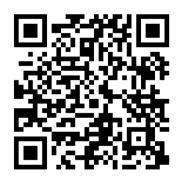
Find out more: 8 monash.edu/study/courses/ find-a-course/environment-andsustainability-s6002
You’re passionate about changing the world. You want to make your mark in sustainability. And you know the pressing challenges we face locally and globally can’t be solved on your own. You’ve come to the right place. Our Master’s degree will build on your passion and teach you how to cross boundaries and develop interdisciplinary solutions, so that you can contribute to creating a more sustainable and equitable world.
The experience you bring to this is just the beginning. In the first part of the course, you’ll gain an interdisciplinary foundation that allows you to analyse the interdependence of nature, society and the economy. You’ll then specialise in an emerging field by choosing one of five specialisations. Then you’ll apply your specialist and interdisciplinary knowledge and skills in the field through internships, industry-linked interdisciplinary or sustainability projects, or a pure research thesis.
It was really satisfying that by the end of the course, I could confidently call myself a sustainability professional. I think this course came to be a real benefit, opening me up to what’s going on within the landscape of sustainable development globally and also giving me the direct benefit in finding the exact field of work that I wanted to do. After I completed my Master’s, I started working within a research institute that works to promote sustainability, bridging the gap between research and practice.”
MALAIKA JAOVISIDHA
Master of Environment and Sustainability alumna Image: Malaika Jaovisidha (Page 9)
CLAYTON (ON-CAMPUS)
FEBRUARY ( First semester )
Full time & part time 2 YEARS / 1.5 YEARS / 1 YEAR ( full time) depending on prior qualifications. See entry requirements
JULY ( Second semester )
ENTRY LEVEL 1
96 POINTS TO COMPLETE
DURATION 2 years full-time, 4 years part-time
An Australian bachelor degree (or equivalent ) with at least 60% (credit ) average, or equivalent qualification and experience approved by the faculty.
ENTRY LEVEL 2
72 POINTS TO COMPLETE
DURATION 1.5 years full-time, 3 years part-time
An Australian bachelor degree (or equivalent ) in a cognate discipline including business, environmental science, humanities, science or social sciences, with at least 60% (credit ) average, or equivalent qualification and experience approved by the faculty.
OR
An Australian bachelor degree (or equivalent ) and an Australian graduate certificate/diploma (or equivalent ) in a cognate discipline including business, environmental science, humanities, science or social sciences with at least 60% (credit ) average in each qualification, or equivalent qualification and experience approved by the faculty.
ENTRY LEVEL 3
48 POINTS TO COMPLETE
DURATION 1 year full-time, 2 years part-time
An Australian bachelor honours degree (or equivalent) in a cognate discipline including business, environmental science, humanities, science or social sciences with at least 60% (credit) average, or equivalent qualification and experience approved by the faculty leading the specialisation.
The Master of Environment and Sustainability allows you to specialise in one of five areas:
• Corporate environmental and sustainability management
• Environment and governance
• Environmental security
• International development and environment
• Leadership for sustainable development
Students
•
•
b) One unit from:
• ENS5910 Sustainability Consultancy Project
• ENS5920 Environment and sustainability project
• ENS5930 Sustainability internship
c) 12 points of units chosen from the list of electives listed for the relevant specialisation

MALAIKA JAOVISIDHA
Master of Environment and Sustainability alumna

Our Master of Environment and Sustainability is a flagship interdisciplinary course that draws upon world leading experts from Arts, Science, the Monash Business School, and the Monash Sustainable Development Institute. Our students and staff are part of an award winning program dedicated to tackling current and emerging challenges of global significance—from biosecurity to economic development.”
Master of Environment and Sustainability Course Director School of Biological Sciences

I have studied at many universities, and I can quite confidently say that the Master of Environment and Sustainability at Monash University is the best course that I have ever done. The Master’s brought together concepts of environmentalism, sustainability and activism together. I feel really lucky to be able to take all of the things that I’ve learnt and work on the ground with these concepts and ideas. I feel really positive about the difference I can make in my organisation.”
SHANE FRENCH
Master of Environment and Sustainability alumnus

Hear from our MES alumni: 8 ow.ly/isj350Qj15H
COURSE CODE: S6001

Find out more:
8 monash.edu/study/courses/find-acourse/financial-mathematics-s6001
Talented mathematicians are highly sought-after by banks and other financial institutions to help manage the increasingly complex and risky financial sector. The Monash Master of Financial Mathematics is a mathematics course designed for application in a business context. It is designed for graduates from across the globe with an aptitude and passion for mathematics and statistics, as well as a keen interest in finance and insurance. This is not a course for generalists; this is a highly specialised degree for students seeking a future in the world of professional quantitative finance.
You will be taught by mathematicians who are leading researchers in areas such as probability, stochastic processes and statistics, computational mathematics and machine learning, and with connections across the financial and insurance industries. You will have access to the state-of-theart teaching facilities, including a Bloomberg data terminal lab. Industry projects and placements, being a core component of the degree, will provide you with an opportunity to gain valuable workplace experience and kickstart your career.
CLAYTON (ON-CAMPUS) Full time & part time 2 YEARS / 1.5 YEARS / 1 YEAR ( full time) depending on prior qualifications.
FEBRUARY ( First semester ) JULY ( Second semester )
MINIMUM ENTRY REQUIREMENTS
See entry requirements
QUALIFICATIONS
ENTRY LEVEL 1
96 POINTS TO COMPLETE
DURATION 2 years full-time, 4 years part-time
An Australian bachelor degree (or equivalent ) with a strong mathematical content 1 with at least a 65% average.
1. Completion of units of mathematics with an emphasis on multivariable calculus, linear algebra, probability, statistics and differential equations.
ENTRY LEVEL 2
72 POINTS TO COMPLETE
DURATION 1.5 years full-time, 3 years part-time
An Australian bachelor degree (or equivalent ) in mathematics with at least a 65% average.
OR
An Australian graduate certificate/diploma (or equivalent ) with a strong mathematical content 2 with at least a 65% average.
2. Completion of units of mathematics with an emphasis on multivariable calculus, linear algebra, probability, statistics and differential equations.
ENTRY LEVEL 3
48 POINTS TO COMPLETE
DURATION 1 year full-time, 2 years part-time
A four-year Australian honours degree (or equivalent ) in mathematics with at least 65% average.
Students who do not have the required mathematical background may gain conditional entry to the program after the completion of the following short courses offered by the School of Mathematics: Multivariable Calculus, Linear Algebra with Applications, and Mathematics of Uncertainty.
COURSE PROGRESSION MAP
YEAR 1
Sem 1 MTH3251
Financial mathematics
YEAR 1
Sem 2
MTH5510
Quantitative risk management
YEAR 2
Sem 1
YEAR 2
Sem 2
MTH5210
Stochastic calculus and mathematical finance
One of the following options:
One of: MTH3241 Random processes in the sciences engineering; MTH3260 Statistics of stochastic processes
Elective from Part A
One of: MTH5520 Interest rate modelling; MTH5530 Computational methods in finance; MTH5550 Quantitative trading and market microstructure; MTH5560 Partial differential equations for finance
One of: MTH5520 Interest rate modelling; MTH5530 Computational methods in finance; MTH5550 Quantitative trading and market microstructure; MTH5560 Partial differential equations for finance
Elective from Part B
One of: MTH5520 Interest rate modelling; MTH5530 Computational methods in finance; MTH5550 Quantitative trading and market microstructure; MTH5560 Partial differential equations for finance
Elective from Part B
• MTH5840 Minor industry placement (12 points) or MTH5820 Minor industry research project (12 points) plus two units, not previously completed from the list of Part B elective units
• MTH5830 Industry placement (24 points)
• MTH5810 Industry research project (24 points)
A. Orientation studies Part B. Specialist studies


LEARN FROM THE BEST
Our highly regarded Master’s program is designed to propel your career to new heights and equip you with the skills and knowledge needed to excel in the dynamic world of finance.
Finance is a global field, and our program prepares you to excel in international markets. You’ll be equipped to work in major financial hubs around the world. Our master’s offers a comprehensive curriculum that blends advanced mathematics with real-world financial applications. You’ll master the quantitative tools and techniques that are in high demand by employers worldwide.”
DR IVAN GUO Master of Financial Mathematics Course Director

The Master of Financial Mathematics program at Monash proved to be the perfect platform to continue to improve my theoretical mathematics while also providing me with a better understanding of the finance world and the type of roles available. Without this internship program I would not be in the position I am today, as this opportunity provided me with my first insight into the industry and allowed me to develop my personal and professional skills.”
OLIVER CLEMENTSON
Master of Financial Mathematics alumnus
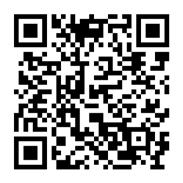
COURSE CODE: S6004
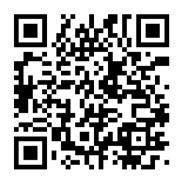
We are facing enormous world-wide challenges in the coming decades, including a rapidly growing population, and one that is ageing quickly. The challenge is to achieve adequate supply of food under sustainable conditions. In fact, one of the major United Nations Sustainable Development Goals is ‘zero hunger’. The United Nations has called for a rethink on how we produce, process and consume food.
This postgraduate course is for students and professionals who wish to apply the latest knowledge and practices into society at all operational and stakeholder levels, including personal entrepreneurship. It is aimed at those who wish to broaden and deepen their understanding and experience to work across public and private sectors of the food value chain. Graduates will become part of a network of professionals who develop and manage the supply of foods to meet individualised and population-based needs, with direct consequences for human survival and enterprise. Find out more: 8 monash.edu/study/courses/ find-a-course/food-science-andagribusiness-s6004
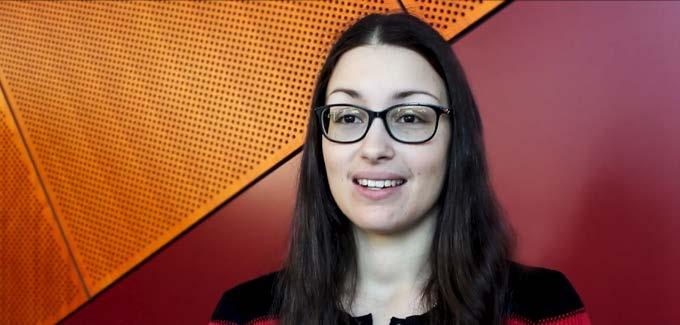
My degree provided me with the opportunity to understand what the food industry actually looks like. It broadened my vision in terms of what role I could secure after I graduated. My degree provided me with all the skills, knowledge and tools in order to get my foot in the door in the food industry.”
JELENA DADOVIC
Master of Food Science and Agribusiness alumna

Hear more from Jelena: 8 ow.ly/RCCy50Qj16z
CLAYTON (ON-CAMPUS)
FEBRUARY ( First semester )
Full time & part time 2 YEARS / 1.5 YEARS / 1 YEAR ( full time) depending on prior qualifications. See entry requirements
JULY ( Second semester )
MINIMUM
QUALIFICATIONS
ENTRY LEVEL 1
96 POINTS TO COMPLETE DURATION 2 years full-time, 4 years part-time
An Australian bachelor degree (or equivalent ) in science, engineering, dietetics or health, with at least 60% (credit ) average, or equivalent qualification and experience approved by the faculty.
ENTRY LEVEL 2
72 POINTS TO COMPLETE
DURATION 1.5 years full-time, 3 years part-time
An Australian bachelor degree (or equivalent ) in food science or food engineering, and at least 60% (credit ) average overall, or equivalent qualification and experience approved by the faculty.
ENTRY LEVEL 3
48 POINTS TO COMPLETE DURATION 1 year full-time, 2 years part-time
An Australian bachelor honours degree (or equivalent ) in food science or food engineering and at least 60% (credit ) average overall, or equivalent qualification and experience approved by the faculty.
GRADUATE CERTIFICATE STUDY OPTION (DOMESTIC STUDENTS)
NOT SURE WHETHER A MASTER’S DEGREE IS FOR YOU? TRY SOME UNITS IN A GRADUATE CERTIFICATE FIRST
In just six months, the graduate certificate provides you with a foundation in Food Science and Agribusiness by allowing you to sample several of the Master units on offer. Successful completion can provide credit and entry into the Master degree.

Find out more: 8 monash.edu/study/courses/ find-a-course/food-science-andagribusiness-s4003

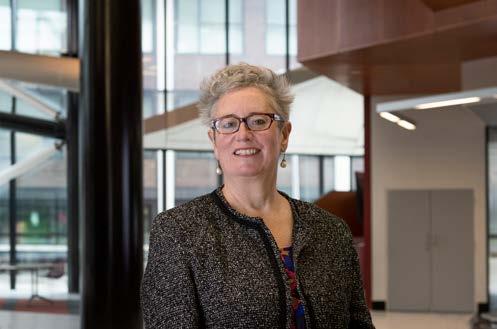
LEARN FROM THE BEST
There is a global challenge to achieve an adequate supply of food, especially protein. This is captured within the UN Sustainable Development goal of ‘zero hunger’. Our Master’s program covers all disciplines of food science and agribusiness, and their applications to addressing future global challenges in food supply.”
PROFESSOR LOUISE BENNETT
Master of Food Science and Agribusiness Course Director
COURSE CODE: S6005
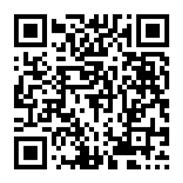
Find out more:
8 monash.edu/study/courses/find-acourse/genome-analytics-s6005
The Monash Master of Genome Analytics will provide you with expert training in bioinformatics, genetics, and genomics, to help you future proof your career in the analysis of genomic data in inherited disease, cancer and more. The program’s multidisciplinary structure and focus on industry and clinical application will provide you with hands-on experience to prepare you for your career. You will be part of a unique graduate cohort able to meet the growing demand for expertise in the analysis of genome sequence data.
As a graduate of this degree, you will become a holistically-trained expert, workplace-ready, and equipped with the knowledge and skills to help revolutionise the future of healthcare. Through the identification of predispositions to disease, the origin of infertility and birth defects, and other genetic disorders, genome analysis is saving lives – but it could be saving many more.
GRADUATE CERTIFICATE STUDY OPTION (DOMESTIC STUDENTS)
NOT SURE WHETHER A MASTER’S DEGREE IS FOR YOU? TRY SOME UNITS IN A GRADUATE CERTIFICATE FIRST
The graduate certificate, and the graduate diploma provides you with a foundation in Genome Analytics and Applied Genome Analytics by allowing you to sample several of the Master units on offer. Successful completion can provide credit and entry into the Master degree.

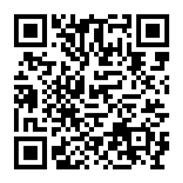
GRADUATE CERTIFICATE OF GENOME ANALYTICS
Find out more:
8 monash.edu/study/courses/find-acourse/genome-analytics-s4007
GRADUATE DIPLOMA OF GENOME ANALYTICS
Find out more:
8 monash.edu/study/courses/find-acourse/genome-analytics-s5008
COURSE PROGRESSION MAP
YEAR 1
Sem 2
YEAR 1
Sem 1
YEAR 2
Sem 2
YEAR 2
Sem 1
GNA2042
Human genetics
GNA5051
Medical and forensic genetics
GNA5012
Applied bioinformatics
GNA2022 The dynamic cell
GNA5022 Sequencing technologies
GNA5011
Genome function
Students complete either a) or b) or c) below:
a) Research thesis unit:
• GNA5900 Genomics research thesis (24 points) OR
b) Coursework and advanced case studies:
• GNA5031 Disease surveillance and the microbiome
• GNA5041 Cancer genomics
• GNA5920 Advanced case studies (12 points) OR c) Coursework and internship:
• GNA5031 Disease surveillance and the microbiome
• GNA5041 Cancer genomics
• GNA5930 Internship (12 points)
CLAYTON (ON-CAMPUS)
JULY
Full time & part time 2 YEARS / 1.5 YEARS ( full time) depending on prior qualifications. See entry requirements
FEBRUARY
( for students with a related undergraduate degree)
Applicants for 2-year version commence in July
Applicants for 1.5 year version commence in February
MINIMUM ENTRY REQUIREMENTS QUALIFICATIONS
ENTRY LEVEL 1
96 POINTS TO COMPLETE
DURATION 2 years full-time, 4 years part-time
An Australian bachelor degree (or equivalent) with at least first year Biology, or related discipline studies and at least 60% (credit ) average overall, or equivalent qualification and experience approved by the faculty leading the specialisation.
ENTRY LEVEL 2
72 POINTS TO COMPLETE
DURATION 1.5 years full-time, 3 years part-time
An Australian bachelor degree (or equivalent ) in genetics, or a cognate discipline such as bioinformatics, biomedical sciences or molecular biology that includes knowledge of fundamental genetics concepts with at least 60% (credit ) average, or equivalent qualification and experience.
GNA3030
Molecular, cellular and developmental genetics
GNA5200
GNA5010
Advanced genetics and biotechnology
Clinical applications of genomics (12 points)
GNA5120
Genome curation (12 points)


If you have a passion to work in an exciting, dynamic area of medical science, to be highly challenged and rewarded at the same time, then the Monash Master of Genome Analytics is for you. Embark on a journey that will unravel the mysteries of our DNA and revolutionize the world of science and healthcare. Understand how genomics is enabling personalized medicine, opening doors to earlier disease detection, allowing us to understand disease mechanisms never understood before and leading to a healthier future for all. Our Master of Genome Analytics will allow you to explore the fascinating world of clinical diagnostic genomics, bioinformatics, and data science like never before. Harness the power of sequencing technologies and critically analyse massive genomic datasets developing your skills in genome analytics. Be at the forefront of medical science with genomics datadriven discoveries.”
DR DESIRÉE DU SART Senior Lecturer School of Biological Sciences
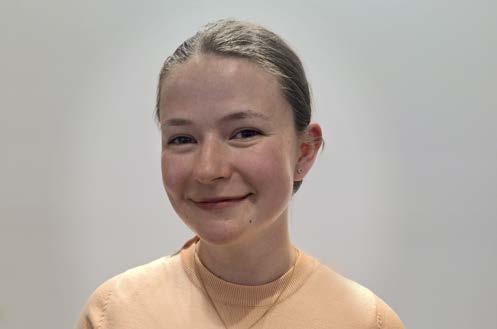
From my experience, the Master of Genome Analytics is an amazing pathway to become a skilled variant curator – a medical scientist with expertise in genome analysis. I started the course with a strong passion, but very little knowledge, about genetics. Through this master’s, I was able to build a comprehensive understanding of different aspect of the world of genomics and its analysis.
This course has lecturers with a range of different backgrounds and experiences, which allows for a holistic understanding of the field and the array of potential career opportunities. More than just making me career-ready, this course helped me to understand the impact and importance of the work being done in genome analytics.
By the last semester of the course, with the help of an internship I completed as part of this degree, I developed all the skills necessary to work within the field. This allowed me to obtain my current position of Variant Curator within a clinical genomics laboratory.
My favourite aspect of this course is that it is very hands-on, with the teaching and assessments directly relating to what I currently do for work. Overall, the Master of Genome Analytics has allowed me to further develop my passion in genetics while giving me the key skills required to start my career in the field.”
JULIE ROBIN 2023 Master of Genome Analytics

COURSE CODE: S6007

Find out more: 8 monash.edu.au/study/courses/find-acourse/geographical-information-scienceand-technology-s6007
The Master of Geographical Information Science and Technology provides industry-relevant training to allow you to pursue or further your career in global and Australian geospatial industry. You will learn the principles, techniques and applications of GIS and technology in a contextual environment from experts at the cutting edge of this field.
The course provides you with the theoretical knowledge and technical skills necessary to develop and apply solutions based on GIS and technology to real-world problems using a range of the state-of-the-art spatial information or geospatial technologies including geographical information systems (GIS), remote sensing, global navigation satellite systems (GNSS), spatial analysis and modelling, and decision support systems; design and implement methods for spatial data capture, design, develop and manage spatial databases; explore, integrate and analyse spatial data from multiple data sources; and to design and implement appropriate procedures for quality control, formulate, implement and manage GIS and remote sensing projects.
CLAYTON (ON-CAMPUS)
Full time & part time
FEBRUARY ( First semester ) JULY ( Second semester )
2 YEARS / 1.5 YEARS ( full time) depending on prior qualifications. See entry requirements
Applicants for 2-year version commence in February Applicants for 1.5 year version commence in July
MINIMUM ENTRY REQUIREMENTS QUALIFICATIONS
ENTRY LEVEL 1
96 POINTS TO COMPLETE
DURATION 2 years full-time, 4 years part-time
An Australian bachelor degree or equivalent with at least a minor in environmental science, earth science, geographical science, atmospheric science, biological science, civil engineering, social science, geography, urban and regional planning, archaeology or business and commerce and at least 60% (credit ) average overall, or qualification, experience or employment in a related industry approved by the faculty.
ENTRY LEVEL 2
72 POINTS TO COMPLETE
DURATION 1.5 years full-time, 3 years part-time
An Australian bachelor degree (or equivalent ) with a major in environmental science, earth science, geographical science, atmospheric science, biological science, civil engineering, social science, geography, urban and regional planning, archaeology or business and commerce including at least one unit covering the fundamentals of GIS and technology, with at least 60% (credit ) average overall, or equivalent qualification and experience approved by the faculty.


Our GIS&T Masters allows you to immerse yourself in the world of spatial data management, spatial analysis, modelling and visualisation, discovering the power of GIS tools for tackling real-world challenges. From terrain analysis to ecosystem service valuation, the course unfolds like an adventure, blending theory with handson examples that come to life. Unleash your GIS potential and navigate the landscapes of environmental research with confidence.”
DR XUAN ZHU
Course Coordinator
Author of GIS for Environmental Applications: A practical approach
COURSE CODE: S6006

Find out more:
8 monash.edu/study/courses/find-acourse/green-chemistry-and-sustainabletechnologies-s6006
The program will provide you with the principles of green chemistry and technologies and a deep understanding of sustainability issues that will lead to the reduction or elimination of hazardous substances, minimise energy requirements, utilise renewable feedstocks and apply circular economy principles in the design, manufacture and application of chemical products. The course will also examine the environmental, economic and social benefits arising from the transformation of the chemical industries of the future.
This course will provide you with core specialist studies in green chemical technologies, focused on applications in different contexts, and integrated with sustainability principles covering both technical, business and societal and cultural issues. As a student in this program, you will have the opportunity to design and implement new products and processes that will highlight the role that chemistry has to play in addressing the UN Sustainable Development Goals.
CERTIFICATE STUDY OPTION (DOMESTIC STUDENTS)
NOT SURE WHETHER A MASTER’S DEGREE IS FOR YOU? TRY SOME UNITS IN A GRADUATE CERTIFICATE FIRST
In just six months, the graduate certificate provides you with a foundation in Green Chemistry and Sustainable Technologies by allowing you to sample several of the Master units on offer. Successful completion can provide credit and entry into the Master degree.

Find out more:
8 monash.edu/study/courses/ find-a-course/green-chemistry-andsustainable-technologies-s4005
COURSE PROGRESSION MAP
YEAR 1
Sem 1
YEAR 1
Sem 2
YEAR 2
Sem 1
YEAR 2
Sem 2
GCH5010 Introduction to green chemistry
GCH5020 Business model design for innovative and sustainable technologies
GCH5030 Green chemistry consultancy project (12 points)
GCH5110 Designing safer chemicals
GCH5120
Green chemical synthesis and applications
Specialist studies in green chemistry and sustainable technologies
CLAYTON (ON-CAMPUS)
Full time & part time
FEBRUARY ( First semester )
JULY ( Second semester )
ENTRY LEVEL 1
96 POINTS TO COMPLETE
2 YEARS / 1.5 YEARS / 1 YEAR ( full time) depending on prior qualifications. See entry requirements
DURATION 2 years full-time, 4 years part-time
An Australian bachelor degree (or equivalent) with at least first year Chemistry studies1 and at least 60% (credit) average overall, or equivalent qualification and experience approved by the faculty leading the specialisation.
1. knowledge of topics in composition and nomenclature of matter; physical, chemical, electrochemical properties of matter; drivers of molecular interactions and stability; quantifying chemical reactions; principles of chemical analysis.
ENTRY LEVEL 2
72 POINTS TO COMPLETE
DURATION 1.5 years full-time, 3 years part-time
An Australian bachelor degree (or equivalent ) in a cognate discipline including chemistry, chemical engineering, biomedical science, materials science, biochemistry, or biotechnology ( with at least 12 points or equivalent of second level chemistry ) with at least 60% (credit ) average, or equivalent qualification and experience approved by the faculty leading the specialisation.
ENTRY LEVEL 3
48 POINTS TO COMPLETE DURATION 1 year full-time, 2 years part-time
An Australian bachelor honours degree ( or equivalent ) in the cognate discipline of Chemistry or Biochemistry with at least 60% (credit ) average, or equivalent qualification and experience approved by the faculty leading the specialisation.
Core further studies in chemistry
Students complete either a. or b. below:
a. Coursework:
• ENS5930 Sustainability internship (12 points) OR
• GCH5920 Sustainability project (12 points) and 12 points of electives from the Part C not previously completed.
b. Research:
• GCH5900 Research project in green chemistry (24 points) OR
• GCH5901 Research project in green chemistry A (12 points) AND
• GCH5902 Research thesis in green chemistry B (12 points)


This important Masters’ program provides students with the principles of green chemical technologies and a deep understanding of sustainability issues that will lead to the reduction or elimination of hazardous substances involved in the design, manufacture and application of chemical products. The course also has a strong focus on how to produce our product needs from renewable resources, with an associated reduction in energy requirements and consideration of circular economy thinking in the design of these products.”
PROFESSOR ANTONIO PATTI
Master of Green Chemistry and Sustainable Technologies Course Director
COURSE CODE: S6003
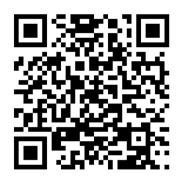
Find out more:
8 monash.edu/study/courses/find-acourse/mathematics-s6003
The Monash Master of Mathematics is designed for graduates with a bachelor’s degree and a strong foundation in mathematics.
From governments to financial and research institutions, employers today are seeking people with advanced knowledge and skills in mathematics who are able to play a critical role in strategic and analytical decisionmaking and problem-solving.
Students who have a passion for mathematics and are considering a future in academia will enjoy this program’s blend of coursework and project work. This degree is also a perfect choice for anyone who wants to expand their mathematical horizons and learn how to apply their newfound expertise in a wide range of settings.

LEARN FROM THE BEST
Dive into the heart of mathematical beauty and innovation. Hone your problem-solving skills, and become a sought-after expert in the field. Our program offers a dynamic blend of theory and practical application, led by world-renowned experts. Immerse yourself in advanced topics like pure mathematics, statistics and computational mathematics. Whether you aspire to excel in academia, industry, or research, our Master of Mathematics degree will equip you with the tools to excel. Elevate your passion for numbers and amplify your career prospects with our Master of Mathematics.”
DR GREG MARKOWSKY
Course Director Master of Mathematics
COURSE PROGRESSION MAP
CLAYTON (ON-CAMPUS)
Full time & part time 2 YEARS / 1.5 YEARS / 1 YEAR ( full time) depending on prior qualifications. See entry requirements
FEBRUARY ( First semester ) JULY ( Second semester )
MINIMUM ENTRY REQUIREMENTS
QUALIFICATIONS
ENTRY LEVEL 1
96 POINTS TO COMPLETE
DURATION 2 years full-time, 4 years part-time
An Australian bachelor degree (or equivalent ) with at least a 65% average or equivalent qualification and experience approved by the faculty; and a 65% average over 4 units in mathematics of which at least 2 are at level 2.
ENTRY LEVEL 2
72 POINTS TO COMPLETE
DURATION 1.5 years full-time, 3 years part-time
An Australian bachelor degree (or equivalent ) in mathematics with at least a 65% average or equivalent qualification and experience approved by the faculty.
OR
An Australian graduate certificate/diploma (or equivalent ) with at least a 65% average or equivalent qualification and experience approved by the faculty; and a 65% average over 8 units in mathematics.
ENTRY LEVEL 3
48 POINTS TO COMPLETE
DURATION 1 year full-time, 2 years part-time
A four-year Australian honours degree (or equivalent ) in mathematics with at least 65% average or equivalent qualification and experience approved by the faculty.

COURSE CODE: S6000
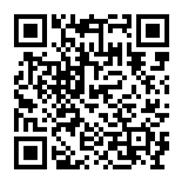
Find out more: 8 monash.edu/study/courses/find-acourse/science-s6000
Deepen your knowledge and skills through advanced coursework and industry application to advance your career or pursue further research. The Monash Master of Science is an expert master’s course that prepares you for professional employment or for PhD studies. An advanced program for science graduates with an undergraduate degree in a related discipline, depending on your interests, you will be able to choose from the following disciplines that leads to a specialist award:
• ASTROPHYSICS
• ATMOSPHERIC SCIENCE
• EARTH SCIENCE
• PHYSICS
COURSE PROGRESSION MAP
CLAYTON (ON-CAMPUS)
FEBRUARY ( First semester )
Full time & part time 2 YEARS / 1 YEAR ( full time) depending on prior qualifications. See entry requirements
JULY ( Second semester ) ( Astrophysics and Physics specialisations only )
QUALIFICATION: Master of Science in Astrophysics, Master of Science in Atmospheric science, Master of Science in Earth science, Master of Science in Physics
MINIMUM ENTRY REQUIREMENTS QUALIFICATIONS
ENTRY LEVEL 1
96 POINTS TO COMPLETE
DURATION 2 years full-time, 4 years part-time
An Australian bachelor degree (or equivalent ) in a cognate science discipline with at least a 65% average in the intended masters discipline or equivalent qualification and experience approved by the faculty.
ENTRY LEVEL 2
48 POINTS TO COMPLETE
DURATION 1 year full-time, 2 years part-time
A four-year Australian honours degree (or equivalent ) in a cognate science discipline with at least a 65% average in the intended masters discipline or equivalent qualification and experience approved by the faculty.
YEAR











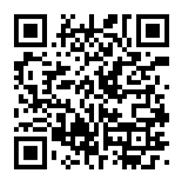
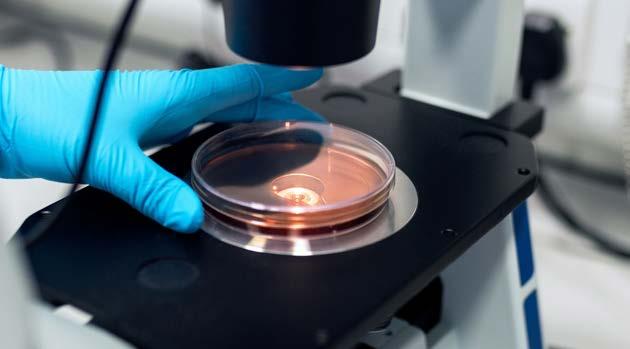

Find out more: 8 monash.edu/science/research/ graduate-research
By undertaking a PhD in Science, you will become a member of a dynamic community of scholars committed to innovation and discovery and contribute to the advancement of knowledge within your area of expertise. Monash Science PhD graduates are highly employable, with many pursuing careers in academia and industry around the world.
Find out more: 8 monash.edu/science/research/graduate-research
The Master of Philosophy will provide you with the opportunity to show independent thought and demonstrate your ability to carry out research in your chosen discipline. It can be taken in any of the Faculty’s principal areas of research, including biological sciences, chemistry, earth sciences, atmospheric sciences, environmental sciences, mathematical sciences, astronomical sciences and physics.
Find out more: 8 monash.edu/study/courses/find-a-course/philosophy-3521
HERE ARE THE STEPS YOU NEED TO TAKE:
1. Check your eligibility at: 8 monash.edu/science/research/ graduate-research/how-to-apply
2. Identify a potential supervisor using Find a Supervisor
3. Contact a research supervisor and complete the Expression of Interest ( EoI )
4. Receive an invitation to apply
5. Apply for a scholarship
6. Prepare documentation
7. Submit your application online
APPLY FOR A RESEARCH PROGRAM AND A SCHOLARSHIP
• Applications for admission to a research degree can be made at any time.
• Candidates applying for research scholarships need to submit an application as per the applicable deadlines.
8 monash.edu/admissions/apply/online
The entry requirements for admission will differ across the various coursework masters degrees within the Faculty of Science.
Please check your eligibility for admission prior to submitting an application. 8 monash.edu/study/courses
All students must meet English language requirements.
• IELTS 6.5 overall with a minimum of 6.0 in reading, listening, writing and speaking.
• Internet-based TOEFL score of 79 with 21 in Writing, 12 in Listening, 13 in Reading and 18 in Speaking.
• Pearson Test of English ( PTE ) overall score of 58 with minimum of 50 in Listening, Reading, Speaking and Writing.
Dependent upon the specific masters coursework degree, you may be eligible to receive:
• up to 48 credit points (equivalent to one year of full-time study ), for previous honours or graduate level studies in a cognate discipline or equivalent qualification/experience approved by the Faculty.
• or up to 24 credit points for previous undergraduate studies in a cognate discipline or equivalent qualification/experience approved by the Faculty.
Applications for credit are assessed on a case-by-case basis. Studies must have been completed within 10 years prior to the year of application for credit.
For more information, visit: 8 monash.edu/admissions/credit
International students who complete a two-year course may be eligible for a post-study work visa. For more information, visit: 8 www.immi.gov.au
Graduate courses attract fees for both domestic and international students. For details of course fees, visit 8 monash.edu/fees
Domestic students
There are two full-fee payment options: a deferred payment through a government loan or an upfront payment.
Government loans
There are two types of government loans and both are available to Australian citizens and permanent humanitarian visa holders.
• HECS-HELP – is a loan to cover the Student Contribution Amount ( SCA ) and is available to CSP holders.
• FEE-HELP – is a loan for 100 per cent of the tuition fee.
Students without a CSP must pay full course fees upfront unless they have a FEE-HELP loan.
Find out more: 8 monash.edu/study/fees-scholarships/loans-and-assistance
Monash is offering alumni, who completed their undergraduate studies in the last five years, a 10% discount on full-fee courses. The 10% discount is applied to your course fees for each semester, and applies to the first 48 credit points of a master’s program. The discount is for both domestic and international students and applies to a wide range of graduate courses across all 10 faculties.
Find out more: 8 monash.edu/students/admin/fees/discounts/alumni
A variety of scholarships and grants are available for prospective and continuing coursework graduate students. The number of scholarship and grant offers made in any one year varies. Scholarships are available from Monash University, the Australian Government and other organisations. Prospective students should examine all the scholarships on offer to see what they could be eligible for.
Find out more: 8 monash.edu/scholarships
Monash International Leadership Scholarship
A 100% course remission for high-achieving international coursework students. Selection is based on academic achievements, an application statement and the student’s potential to be a Monash University ambassador. Find out more: 8 monash.edu/study/fees-scholarships
Monash International Merit Scholarship
A$10,000 scholarship paid per year to high-achieving international coursework students.
Find out more: 8 monash.edu/study/fees-scholarships
The Australia Awards are an initiative of the Australian Government to promote knowledge, education links and enduring ties between Australia and our neighbours through Australia’s extensive scholarship programs. Monash University offers a range of courses suited to the development needs of the Australia Awards and its scholarship holders. Find out more: 8 monash.edu/fees/australia-awards


MONASH SCIENCE ONLINE monash.edu/science
X @ Monash_Science INSTAGRAM @ monash_science
YOUTUBE youtube.com/ScienceMonashUni FACEBOOK facebook.com/ScienceatMonash
TIKTOK @ monash_science


Make a 1-on-1 appointment with our Course Directors calendly.com/monash-science-pg
Graduate Study Options monash.edu/science/futurestudents/graduate-options
MONASH UNIVERSITY monash.edu
FIND A COURSE monash.edu/study
FUTURE STUDENT ENQUIRIES Australian citizens, permanent residents and New Zealand citizens monash.edu/students/support/connect International students T Australia freecall: 1800 MONASH (666 274) T +61 3 9903 4788 (outside Australia) E study @monash.edu

